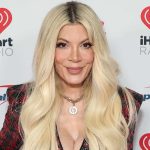Just days ago on November 7, 2025, the NCAA dropped a bombshell that shook the world of college basketball. Six promising young men from three schools lost their eligibility forever after probes uncovered game manipulation and insider tips to bettors. The players involved Dae Dae Hunter, Dyquavian Short and Jamond Vincent from the University of New Orleans, Donovan Sanders and Alvin Stredic from Mississippi Valley State University, and B.J. Freeman from Arizona State University now face a future without the court that defined their dreams.
None of them remain enrolled at their schools, and the fallout stretches far beyond hardwood floors into shattered careers and family heartaches. This latest college basketball betting scandal in 2025 underscores a brutal truth. The rush of legalized sports wagering has poured billions into the sport, yet it tempts vulnerable athletes with quick cash that often leads to ruin.
Betting Boom: Big Money in Sports Means Big Risk for College Players
Legal sports betting has exploded across the United States since its widespread legalization just seven years ago. States now collect over $13.7 billion in gross gambling revenue annually, a 23 percent jump from 2023 alone. Professional leagues partner with betting giants, weaving wagers into broadcasts and apps that turn every buzzer-beater into a potential payday. College hoops rides this wave too, with fans betting on props like total points or player stats during March Madness frenzy.
For student-athletes in the NIL era, the allure hits hard. They see peers cashing endorsement checks worth thousands, so sharing a tip on their next game's spread feels like just another hustle. Yet the recent NCAA actions reveal the dark edge. At New Orleans, Hunter, Short and Vincent conspired across seven games to miss shots and fail to cover spreads, chasing $5,000 payouts from shadowy bettors. Texts and cash handoffs exposed their scheme, turning team loyalty into betrayal.
Over at Mississippi Valley State, Sanders and Stredic fielded offers to tank halves against Alabama A&M, while unusual bets spiked the handle 3.6 times above average for Southwest Athletic Conference matchups. Freeman's case stung differently. He leaked stats to a former teammate and girlfriend for fantasy wagers, a slip that cost him his Sun Devils spot. These stories grip the gut because they involve kids, barely out of high school, seduced by easy money in a system that profits off their sweat.

Basketballs lined up beside the court, a quiet reminder of the game behind the growing stakes in college sports betting.
The Crushing Cost of a Single Bad Bet on Young Dreams
Imagine grinding through endless drills and late-night film sessions, only to watch it all vanish in a haze of regret. That's the raw sting for these six athletes and their families right now. Hunter, once a dynamic guard plotting his pro leap, now stares at a blank horizon without NIL gigs or draft buzz. Short and Vincent, teammates turned co-conspirators, lose not just games but the brotherhood that fueled their fire.
At Mississippi Valley State, Sanders overheard whispers of "throwing the game" before a Tulsa blowout, where massive bets on a 26-point spread raised red flags at sportsbooks. Stredic denied intent but couldn't dodge the probe's glare. Freeman, a 6-foot-6 scoring machine who lit up the Horizon League with 21 points a night, shared edges on his own output, dooming his Arizona State transfer glow-up. According to analysis reviewed by Finance Monthly, such scandals erode an athlete's brand value overnight, slashing potential earnings from $500,000 in NIL deals to zero in moments. It's heartbreaking, a reminder that one desperate choice ripples through parents' savings and siblings' hopes, leaving scars no championship ring could heal.
A Revenue Engine with Cracks: Sports Betting, College Sports and Financial Fallout
The betting boom juices college sports with fresh cash, no question. Conferences snag sponsorships from DraftKings and FanDuel, boosting media rights deals north of $1 billion yearly for basketball alone. Fans tune in deeper, wagers spiking viewership and ad dollars that flow back to athletic departments strained by coaching salaries and arena upgrades.
Yet cracks spiderweb through this gold rush. When integrity crumbles, as in the New Orleans seven-game fix or Mississippi Valley State's flagged wagers, the cleanup devours budgets. Schools pour funds into monitoring software, ethics training and legal defenses, costs that balloon with every text message subpoena.
Reputations tarnish too, scaring off donors and dipping ticket sales by double digits in scandal-hit seasons. For the athletes, the hit lands hardest. A projected first-rounder like Freeman sees draft stock plummet, trading seven-figure NBA contracts for gig jobs. Institutions feel the pinch in lost talent pipelines, while the NCAA grapples with probes that stretch resources thin. This ecosystem thrives on trust, and when that erodes, the money machine sputters, leaving everyone from boosters to ball boys paying the tab.
The Sneaky Way Betting Scandals Drain Your Wallet as a Fan
Beyond the court-side drama, this surge in sports gambling carries a stealthy financial punch for everyday fans like you and me. Legalized betting doesn't just amp up game nights, it rewires household budgets in ways that sneak up over time. Picture this plain truth: when states greenlight apps like BetMGM, more people dive in, chasing thrills on college hoops spreads.
But a fresh Northwestern University study uncovers the real sting. Bettors shift cash from smart long-term investments, like retirement funds or home down payments, straight into wagers that rarely pay off steady. Finance professor Scott Baker, who co-authored the research, puts it with quiet urgency that hits home. "People are basically taking away money from long-term investments, and they’re spending it more in the present.
But then we also see that they are more, maybe, exposing themselves to more financial instability or financial fragility, kind of increasing amounts of overdrafts, running up more debt on their credit card." His words carry an emotional weight, echoing the quiet panic of families watching savings evaporate on a bad parlay. The data backs it harshly: post-legalization, credit card balances climb 15 percent on average, available credit shrinks, and net investments drop noticeably, especially in betting-hot states like New Jersey or Pennsylvania. Why should you care as a consumer? Because that extra $50 bet on Freeman's points total before his ban could mean $500 less in your 401(k) a year later, compounding into thousands over decades.
It touches your wallet through higher interest payments that fuel inflation or force skipped family vacations. One anonymized example from the study shows a mid-30s fan in Ohio, hooked on college props, who racked up $2,000 in overdraft fees over six months, derailing a planned car purchase. The insight here flips the script: betting scandals amplify this by eroding trust, yet they also spotlight the need for personal guardrails.
Here's practical gold you won't find in every headline, dive deeper than surface warnings. Track your betting spend against a "fragility score," a quick home calc Baker's team endorses, add up last month's overdrafts and credit spikes, then cap wagers at 5 percent of that disposable chunk max. Swap one game bet weekly for a no-risk index fund deposit instead, turning fan passion into quiet wealth builder. This shift isn't about quitting the fun, it's reclaiming control so scandals shock the system, not your statement.

The intersection of professional basketball and sports betting highlights the financial stakes and risks for players and fans alike.
Why This Matters to Fans, Families and the Future of the Game
Investors in media giants like Disney or betting stocks like Flutter Entertainment eye these busts warily, knowing a tainted tournament tanks valuations fast. Universities recalibrate too, baking compliance lines into budgets that already juggle $100 million facility debts. For agents scouting the next Freeman, the memo screams caution: vet clients' app habits early, or watch deals dissolve.
Yet hope flickers amid the rubble. The NCAA's fresh nod to athletes betting on pros, not college games, aims to draw lines without dimming NIL sparks. Conferences invest in AI watchdogs that flag odd spreads pre-tip, a tech spend that could save seasons. As fans, we root not just for upsets but for kids who chase hoops without the house always winning. This November 2025 reckoning feels urgent, a pivot point where glamour meets grit. The money floods in, sure, but safeguarding the soul of the game demands we all step up, before another young star fades to footnotes.
Behind the Buzzer: What Fans Are Really Wondering About This Scandal
What sparked the NCAA's permanent bans for these six college basketball players in 2025?
The bans stemmed from three distinct probes uncovering manipulation and leaks during the 2024-25 season. At New Orleans, three players rigged seven games to miss spreads for $5,000 bribes, backed by texts and cash meets. Mississippi Valley State's duo took offers to tank halves, triggering 3.6 times normal bets on one clash. Arizona State's Freeman fed stats to pals for fantasy plays. None fight the rulings, highlighting how apps lure insiders into traps that end promising paths cold.
How is the sports betting boom reshaping the risks for college hoop stars today?
Legal wagers hit $150 billion yearly now, tempting NIL-era athletes with insider edges that promise fast cash amid endorsement hunts. Yet apps track anomalies sharp, flagging spikes that doom careers like these six. Schools ramp education, but the pull persists, blending glory with gamble in a way that tests young resolve daily. Fans see more drama, but at what human cost?
What is B.J. Freeman's net worth in 2025?
B.J. Freeman's estimated net worth sits between $100,000 and $500,000 this year, pieced from scholarships, NIL partnerships with local brands, and merchandise pops from his scoring sizzle. The 6-foot-6 guard torched nets for 21 points a game at Milwaukee before his Arizona State jump, earning second-team All-Horizon nods and draft whispers. Scandals aside, his marketability shone through undisclosed sponsorships adding tens of thousands, though bans now cap that climb, underscoring NIL's fragile shine for transfer talents.














